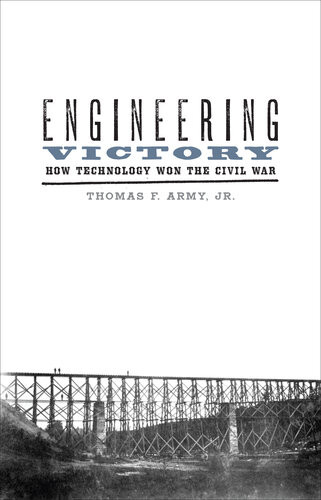

Most ebook files are in PDF format, so you can easily read them using various software such as Foxit Reader or directly on the Google Chrome browser.
Some ebook files are released by publishers in other formats such as .awz, .mobi, .epub, .fb2, etc. You may need to install specific software to read these formats on mobile/PC, such as Calibre.
Please read the tutorial at this link: https://ebookbell.com/faq
We offer FREE conversion to the popular formats you request; however, this may take some time. Therefore, right after payment, please email us, and we will try to provide the service as quickly as possible.
For some exceptional file formats or broken links (if any), please refrain from opening any disputes. Instead, email us first, and we will try to assist within a maximum of 6 hours.
EbookBell Team

4.3
58 reviewsSuperior engineering skills among Union soldiers helped ensure victory in the Civil War.
Engineering Victory brings a fresh approach to the question of why the North prevailed in the Civil War. Historian Thomas F. Army, Jr., identifies strength in engineering―not superior military strategy or industrial advantage―as the critical determining factor in the war’s outcome.
Army finds that Union soldiers were able to apply scientific ingenuity and innovation to complex problems in a way that Confederate soldiers simply could not match. Skilled Free State engineers who were trained during the antebellum period benefited from basic educational reforms, the spread of informal educational practices, and a culture that encouraged learning and innovation. During the war, their rapid construction and repair of roads, railways, and bridges allowed Northern troops to pass quickly through the forbidding terrain of the South as retreating and maneuvering Confederates struggled to cut supply lines and stop the Yankees from pressing any advantage.
By presenting detailed case studies from both theaters of the war, Army clearly demonstrates how the soldiers’ education, training, and talents spelled the difference between success and failure, victory and defeat. He also reveals massive logistical operations as critical in determining the war’s outcome.